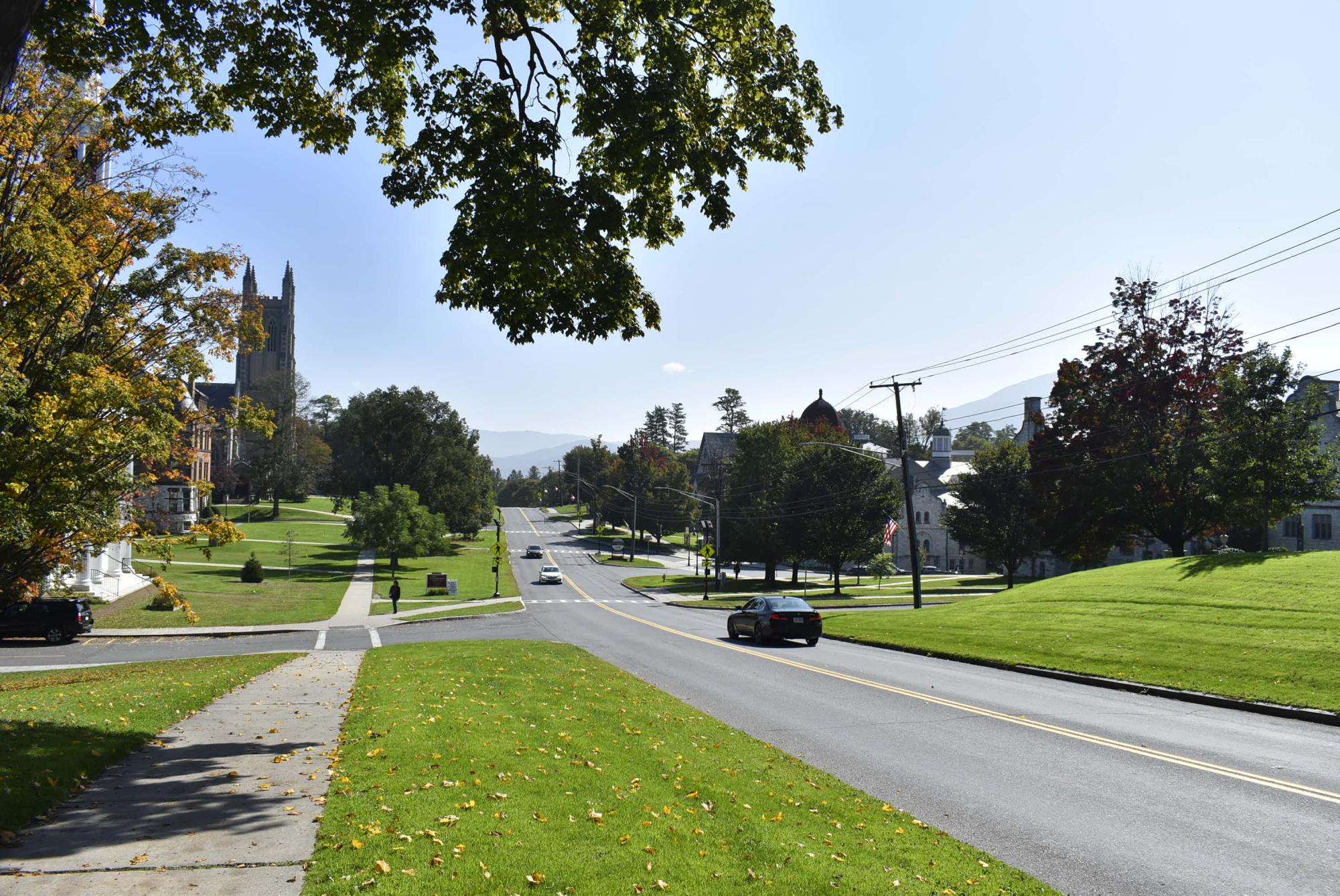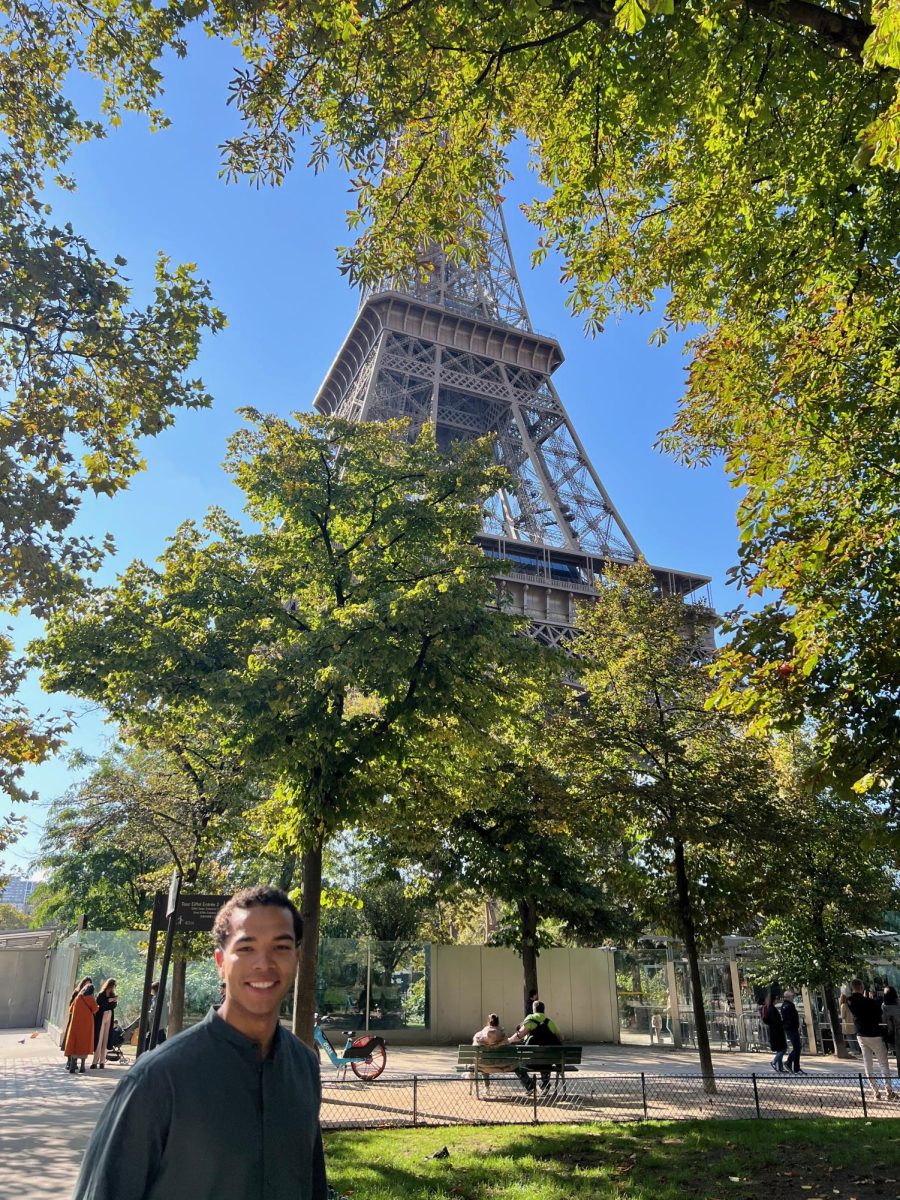
Some professors at the College live a stone’s throw away from campus and can be spotted walking their dogs across Paresky lawn in the afternoon. But not Professor of Art History Michael Lewis. Every Monday, Lewis leaves his home in Philadelphia, Pa., loads up his Volkswagen Jetta SportWagen, and drives 275 miles to the College, where he’ll stay for the school week before driving the 275 miles back home on Thursday or Friday.
Lewis’s wife lives full-time in Philadelphia, where she is the director of a cultural institution. Over Lewis’s 30 years at the College, the couple has tried, unsuccessfully, to find positions that would allow them to live and work in the same city. “I’ve tried to find jobs at universities there, she has interviewed for positions up here at museums, and nothing has connected,” he said. “At a certain point, you realize it’s not going to happen.”
The Lewises are not alone in this predicament. The College’s rural location has long made it difficult for spouses of faculty members to find employment in Williamstown, and some professors choose to live in a more urban setting and commute to the College — even if that commute is hundreds of miles long.
Over the years of their employment at the College, Lewis and his long-commuting colleagues have adapted to the lengthy drive and the scheduling challenges it entails. Professor of History Anne Reinhardt, who lives in Newton, Mass., teaches classes only between Tuesday and Thursday to maximize the time she spends with her husband and children at home.
Lewis has learned not to head home during Friday afternoon rush hour traffic. If he times it right, his commute time can drop from six hours to five. Lewis noted that he makes the best time back to the College on Superbowl Sunday.
During that time, Lewis has listened to a lot of audiobooks — from Fyodor Dostoyevsky’s Crime and Punishment to all seven books of the Harry Potter series. Lately, he’s tended to put on taped recordings of poetry in German. “I have been amusing myself [by] memorizing German poems during the drive, but the problem is nobody understands it here, and none of my German friends want to hear it,” Lewis told the Record.
For about a dozen years, Lewis spent his weeknights in Williamstown in College-owned apartments intended specifically for commuting professors. “The idea is a very humane one,” he said. “If we’re not going to give your husband or wife a job, at least we can make it easier for you to commute.” For a modest rent, with utilities included, he had a landing pad for his weeknights at the College.
The College’s rental model was inspired by Aspen, Colo., Lewis said, where homeowners rent out their apartments during peak ski season, thus subsidizing a vacation of their own. When commuting professors spent the summer months at home, the apartments were available for the College to list as rentals for summer vacationers.
However, Lewis’s housing situation with the College came to an end this year, as some more senior faculty were moved out of sponsored housing to account for the housing shortage in Williamstown and accommodate demand from newer faculty members, he said. “I got kicked out of it this year … and other people were given the big gold-plated boot,” he said.
Professor of History Karen Merrill, who commutes from Amherst, Mass., has noticed that the number of faculty members with long commutes has grown over her years at the College. She attributed the increase to the rise in married couples where both spouses work, particularly if both are academics.
“[For] academic couples, you really don’t have a huge amount of choice where you’re going to land,” she said.
That was certainly true for Reinhardt. Her husband is also an academic, and the couple knew they wouldn’t necessarily get two jobs in the same place. “Very early on … we decided that our strategy was to look for the best jobs that we could find,” she said.
Initially, that led Reinhardt to the University of Rochester and her husband to MIT. The couple was based in Boston, and Reinhardt flew to Rochester, N.Y., every one to two weeks. Getting a position at the College was actually a relief for Reinhardt. “At least it’s a bit of a shorter drive,” she said — about two hours and 45 minutes each way.
The College has also made moves to accommodate the increasing number of commuting faculty, Merrill explained. Most meetings are now confined to the Tuesday-through-Thursday window, which is far better for faculty members like Reinhardt, who doesn’t spend her Mondays and Fridays in Williamstown. And after the pandemic, students and colleagues alike are far more willing to meet over Zoom.
Even so, Lewis, Merrill, and Reinhardt all expressed regret over the fact that their commutes mean that they sometimes miss performances and lectures held on campus. Many department-sponsored talks, for example, fall on Thursday evenings, when Reinhardt is already en route to Newton.
For Lewis, engagement with campus and its students, despite his long commute, is essential. “The challenge for every commuting faculty member is not to be what the Germans contemptuously call a ‘De-Mi professor,’” Lewis said. “De-Mi is short for Dienstag-Mittwoch,” or a Tuesday-Wednesday professor in English, he explained, “he professor who glides in on Tuesday afternoon, gives a lecture, stays one night, next morning gives a seminar, and hightails it back to wherever — Berlin or Vienna or Munich.”
“I’ve never wanted to be that guy,” Lewis continued. “I realized that much of the serious mentorship happens over coffee or lunch, a beer, walking down the street, and having human connections… I would feel shabby indeed to be lecturing as I was running back to the car.”








